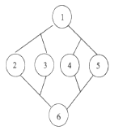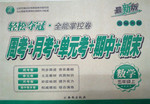题目内容
【题目】 Recently there was a major discovery in the scientific research—the mapping of all DNA in a human gene is complete. Several years ago, it seems an impossible task for scientist to accomplish. All this progress in science leads us to believe that the day when human being will be cloned is not far away. Human cloning has always been a topic of argument in terms of morality (道德) or religion.
Taking a look at why cloning might be beneficial, among many cases, it is arguable that parents who are known to be at risk of passing a genetic limitation to a child could make use of cloning. Moreover, cloning would enable women who can't get pregnant to have children of their own.
Cloning humans would also mean that organs could be cloned, so it would be a source of perfect transfer organs. This surely would be greatly beneficial to millions of unfortunate people around the world who are expected to lose their lives due to organ problems. It is also arguable that a ban on cloning may be unlawful and would rob people of the right to reproduce and limit the freedom of scientists.
However, arguments against cloning are also on a perfectly practical side. Primarily, I believe that cloning would step in the normal "cycle" of life. There would be a large number of same genes, which reduce the chances of evolution, since it may be difficult for living creatures to naturally adapt to the ever-changing environment, which will result in ultimate disappearance. Furthermore, cloning would make the uniqueness that each one of us possesses disappear. Thus, leading to creation of genetically engineered groups of people for specific purposes and, chances are that those individuals would be regarded as "objects" rather than people in the society.
Scientists couldn't surely guarantee that the first cloned humans will be normal. Thus this could result in introduction of additional limitations in the human "gene-pool".
Regarding such arguable topics in "black or white" approach seems very innocent. We should try to look at all "shades" of it. I believe that cloning is only legal if its purpose is for cloning organs; not humans. Then we could regard this as for "saving life" instead of "creating life". It is believed that cloning humans is morally and socially unacceptable.
【1】What's the author's opinion on cloning?
A.Cloning should be entirely banned.
B.Cloning should be used in creating life.
C.Cloning will take away the right to reproduce.
D.Cloning is acceptable if it is used for cloning organs.
【2】Which of the following shows the structure of the passage?
A. B.
B.
C. D.
D.
【3】Where is the text probably from?
A.A story book.B.A magazine.
C.A science fiction.D.A novel.
【答案】
【1】D
【2】A
【3】B
【解析】
这是一篇议论文。最近在科学研究方面有了大的发现——人类基因的完整图谱。这一重大发现使人们相信克隆人的那一天不再遥远。克隆人一直受到争议,无论是从道德还是宗教方面来说。但是克隆人有好处:一是使那些不孕不育的女性有自己的孩子;二是可以用来克隆器官。但是克隆人使人不再具有唯一性,而且也不能保证正常。所以,作者认为克隆器官可以被接受。
【1】
细节理解题。根据文章最后一段的I believe that cloning is only legal if its purpose is for cloning organs; not humans.可知,作者认为只有在目的是为克隆器官,而不是人类时,克隆才是合法的。D. Cloning is acceptable if it is used for cloning organs.(克隆如果被用来克隆器官是可以接受的)符合以上说法,故选D项。
【2】
推理判断题。文章的结构是:第一段引出论点Human cloning has always been a topic of argument in terms of morality (道德) or religion.(人类的克隆是一个争论的话题,这涉及到道德与宗教);第二三段提出支持方的观点Taking a look at why cloning might be beneficial (看看为什么克隆是有益的);第四五段提出反对方观点However, arguments against cloning are also on a perfectly practical side.(然而,反对克隆的争论也有非常实际的一面);第六段提出个人观点I believe that cloning is only legal if its purpose is for cloning organs; not humans.(我认为只有在目的是为克隆器官,而不是人类时克隆才是合法的),故本文的结构是:提出论点(1段)——正方观点(2,3段)/反方观点(4,5段)——个人观点(6段)。故选A项。
【3】
推理判断题。通读全文可知,尤其是第一段的Human cloning has always been a topic of argument in terms of morality (道德) or religion.(人类的克隆是一个争论的话题,这涉及到道德与宗教);第二段的Taking a look at why cloning might be beneficial (看看为什么克隆是有益的);第四段的However, arguments against cloning are also on a perfectly practical side.(然而,反对克隆的争论也有非常实际的一面)和第六段的I believe that cloning is only legal if its purpose is for cloning organs; not humans.(我认为只有在目的是为克隆器官,而不是人类时,克隆才是合法的)可知,文章提出克隆是一个有争议的话题,列举它优点和缺点,还发表了自己的观点。这是一篇和社会伦理道德相关的文章,由此推测它很有可能出现在杂志上。B. A magazine.(一份杂志)符合以上推测,故选B项。

 轻松夺冠全能掌控卷系列答案
轻松夺冠全能掌控卷系列答案【题目】
When you throw something in the trash, soon a garbage truck will come to take it away. Then where does it go? That depends on where you live. Different towns deal with trash in different ways. | |
Recycling A recycling truck picks up paper, cardboard, metal, plastic and glass. These go to the recycling plant to be sorted and made into new things. |
|
Incinerator An incinerator is a huge stove that burns trash to make heat and electricity. The ash that’s left gets buried in a landfill. Trash ash can be poisonous, so it has to be stored carefully. But is takes up a lot less room than just plain trash. |
|
Compost Food waste might go to a composter. In a compost heap (堆肥堆), bacteria and worms break down dead plants and old food. They turn it in into good, rich oil. Some people keep compost heaps in their gardens. Big commercial composters handle waste from restaurants and farms. |
|
Landfills Some trash gets buried in landfills. A landfill starts as a big hole. Trucks dump trash. Big earth movers push it into place and crush it down. They cover the trash with dirt to keep scavengers (食腐动物) away. The bottom of a landfills is lined with a barrier to keep bad things from leaking into the ground. Pipes drain away liquid. When the landfill is full, it’s covered with earth. It might become a park or lawn. |
|
【1】What can we learn from the passage?
A.Recycling helps to generate energy.
B.Bacteria and worms helps handle food waste.
C.The landfill is used to drive scavengers away.
D.Trash ash is carefully handled to save room.
【2】What’s the purpose of the passage?
A.To inform us of trash treatment.
B.To appeal for trash classification.
C.To discuss solutions to trash pollution.
D.To raise awareness of the harm of trash.





